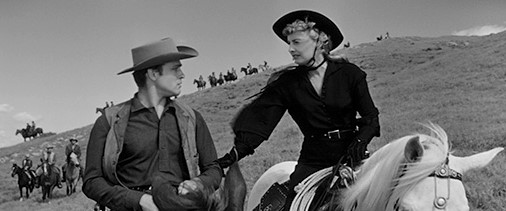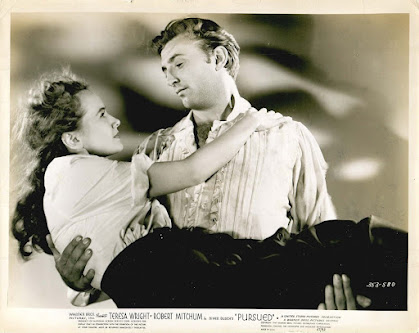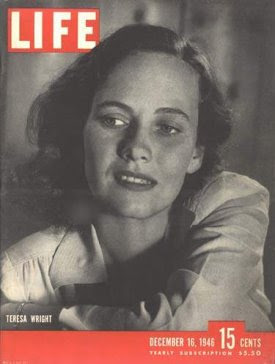Twelve O’Clock High is an American WW II drama directed by Henry King and starring Gregory Peck. The strong supporting cast includes Hugh Marlowe, Gary Merrill, Millard Mitchell, and Dean Jagger.
Brigadier General Frank Savage (Peck) replaces Colonel Keith
Davenport (Merrill), who was accused of being too involved with the men under his
command. Savage struggles with some of the same issues that challenged
Davenport.
The film, told in flashback, focuses on Savage's leadership in
England and how he struggled to bring discipline to the group that he found
lacking.
Does this look back change defend Savage’s leadership?
 |
| Gary Merrill and Gregory Peck |
Henry King (1886 - 1982) was an American actor and director. He was nominated for two Academy Awards for Best Director, and seven films he directed were nominated for Best Picture, including The Song of Bernadette (1943), where he directed Jennifer Jones to a Best Actress Academy Award. While under contract to Twentieth Century-Fox directed many films starring Tyrone Power and Gregory Peck. Some popular films directed by King include Lloyd's of London (1936), In Old Chicago (1937), Jesse James (1939), Twelve O'Clock High (1949), The Gunfighter (1950), David and Bathsheba (1951), The Sun Also Rises (1957), and The Bravados (1958).
Gregory Peck (1916 – 2002) was one of the
biggest stars in Hollywood. He had three Best Actor nominations early in his
career for The Keys to the Kingdom (1944), The
Yearling (1946), Gentleman’s Agreement (1947),
and Twelve O’Clock High (1949). He had non-exclusive contracts
with David O. Selznick and Twentieth Century-Fox, which gave him great
flexibility in the roles he chose to play. Other classic Peck film roles
include Roman Holiday (1953), The Big Country (1958), The
Guns of Navarone (1961). He finally won a Best Actor Academy Award for
his iconic portrayal of Atticus Finch in To Kill a Mockingbird (1962).
Twelve O’Clock High trivia
- Gregory Peck originally turned the role down. He was convinced to take the role by the director Henry King. Peck would go on to make five more films together. John Wayne was offered the role but turned it down.
- An early Hollywood film to deal with the psychological effects of soldiers at war.
- The film was originally planned to be filmed in color but was filmed in black and white so they could incorporate black and white stock footage.
- The B-17 was intentionally crashed by stunt pilot Paul Mantz. He was paid $4,500 for the stunt.
- Dean Jagger won a Best Supporting Actor Academy Award for his performance.
Click HERE to watch the movie on YouTube.
Click HERE to join the online discussion on March 31, 2025,
at 6:30 p.m. Once you RSVP, you will receive an email invitation with a link to
join the discussion on Zoom.
Discussion questions
- Did you think this was a realistic portrayal of men at war?
- What did you think of Gregory Peck’s performance?
- The film has a strong supporting cast. Did any member stand out to you?
- Dean Jagger won a Best Supporting Actor Oscar for his performance. Was it well deserved in your opinion?







